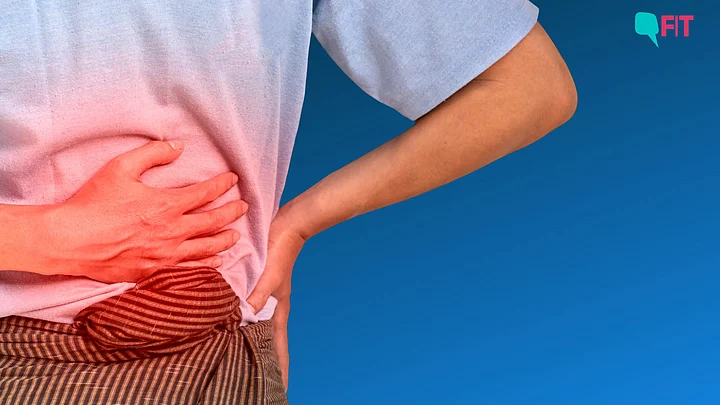We're all familiar with the uncomfortable stabbing pain and fullness of feeling bloated. You can't sit, you can't stand, you can't sleep, and worse of all, you can barely stomach the thought of eating anything, let alone actually eat.
Why does this happen? How does your body go from feeling just fine to feeling like a balloon with no release?
Bloating: Why Does It Happen?
Bloating is a condition where your gastrointestinal (GI) tract gets filled with air or gas from what you eat, your lifestyle, or for medical reasons, making you feel full and tight in your belly.
Food: The most common reason for bloating is a buildup of gas in your gut.
This is most commonly caused by particular foods and drinks like lentils and fizzy drinks.
It can also be caused if you eat too fast and gulp too much air while swallowing food.
Some people may also have digestive issues that can cause bloating after meals such as:
Constipation
Food allergies
Coeliac disease
Irritable bowel syndrome (IBS)
Gynecological conditions
Medication Effects: Sometimes some medicines, particularly those with steroids may cause the kidneys to hold on to sodium. The body often tries to combat stress with an excessive production of the hormone estrogen. This prevents normal excretion of salt from the kidneys, adding to fluid retention.
Say No To Excess Salt
Stick to the one-teaspoon-a-day (most doctors agree on an intake of 2,400 mg; about a little more than a teaspoon) whether it’s in soups, salads, pickles, rotis, vegetable, fries, rice, dals and anything else you may consume.
So go easy on the saltshaker but also ban the other likely triggers - junk and processed food.
Watch out for MSG (Mono Sodium Glutamate) - a kind of salt - found in Chinese food and processed food. Also read your labels for "MSG" or "hydrolysed vegetable protein, which contains MSG, and avoid these foods as much as possible.
A word of caution: Too little salt signals the kidneys to secrete a hormone that conserves salt, partly by reducing urinary output! Take care to monitor your intake so you don’t get caught in a Catch 22 situation!
Switch Up Your Diet
According to Johns Hopkins University, people who frequently experience bloating can benefit from a low fermentable oligosaccharides, disaccharides, monosaccharides and polyols (FODMAP) diet.
The diet basically entails avoiding fermented, gas-producing food ingredients, such as:
Refined flour
Onions
Garlic
Legumes and beans
dairy products with lactose
Certain fruits like apples, plums and pears
Certain vegetables like cauliflower
On the other hand, foods like tomatoes, bananas, turmeric and ginger can help ease bloating.
Identify Food Allergies
If you constantly feel congested, with puffy eyes and a headache, food allergy could be a suspect too. Usually allergies are associated with hives, stomach pain and headaches. Now just add bloating to that list also.
Dairy products, wheat, fish, eggs and nuts are common allergy-causing foods.
Some people notice that cutting out dairy products for 4 weeks helps them reduce weight and puffiness and feel energetic, weed out possible food allergies.
Try eliminating one suspect food item from your diet at a time for a couple of weeks and see if it helps to keep the swelling down. You will then know the culprit.
Your Other Buddies
Potassium is very important as foods high in potassium help offset the sodium load. Calcium and magnesium also play an important role in the fluid balance in the body.
Where to get these?
For potassium, eat at least five servings of fruit and vegetables. Nuts and seeds are good sources too.
For magnesium, depend on nuts (spl. almonds), legumes, wheat grains, green vegetables, potatoes, apples, jamun, phalsa, mangoes, amla, guava and bananas.
Also check up if you are getting enough calcium daily?
Some vitamins play a role too. Vitamin B6 (pyridoxine) is thought to help in cases of mild fluid retention. Good sources of vitamin B6 include brown rice and red meat.
Vitamin B5 (pantothenic acid), calcium and vitamin D help the body to excrete excess fluids.
Finally, Check Your Water Meter
You could be retaining water if you are dehydrated. That’s because just like when on a crash diet the body responds by going into starvation mode and clings to fat, your body begins to hold on to fluid when it's dehydrated.
So a bloated stomach could actually be a signal to gulp some water down. In fact drinking plenty of water will actually help your kidneys to flush out excess fluid.
Although caffeine (too much coffee, tea) and alcohol are both diuretic, consuming these in excess will only dehydrate you and worsen fluid retention.
Avoid aerated drinks as the bubbles in these lead to more gas formation - so even more discomfort.
Say no to alcohol. Alcohol does act as a diuretic at first, making you lose excess water. But this loss of fluid can progress to the point of dehydration.
Drink at least eight glasses of water a day to help flush out the salt.
A word of caution: Water retention may also be a symptom for the following ailments: Kidney diseases; heart problems; chronic lung diseases; liver disease; hypothyroidism; arthritis; allergic reaction. So get a complete medical if bloating persists.
(Kavita Devgan is a nutritionist, weight management consultant, and health writer based in Delhi. She is the author of The Don't Diet Plan: A no-nonsense guide to weight loss, Fix it with Food, Ultimate Grandmother Hacks, and The Immunity Diet and 500 Recipes: Simple Tricks for Stress Free Cooking.)

